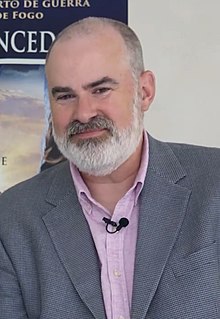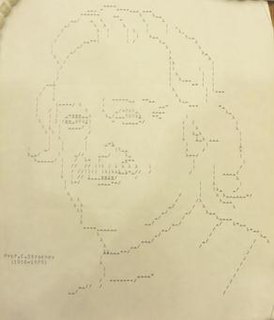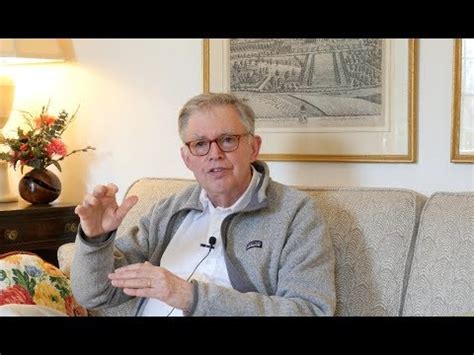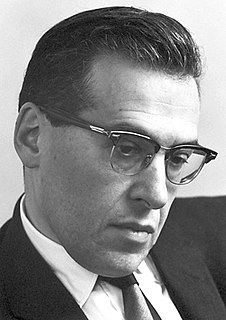A Quote by Linus Torvalds
Language is one of the fundamental principles of human understanding. It is the way we interact with each other and how we grasp the world we live in. Intelligence is the ability to avoid doing work, yet getting the work done.
Related Quotes
As you show these principles over and over , it becomes engrained into how we think. And, when your kids see that, they begin doing it to their siblings. And so we've seen that as well. Many of these aspects I already knew as a parent but, as I study them more, there are more avenues that I can apply in my own parenting and I'm seeing how my kids are watching how I (interact) with my wife and (with) each of them and I watch how they (interact) with each other.
It has long been my personal view that the separation of practical and theoretical work is artificial and injurious. Much of the practical work done in computing, both in software and in hardware design, is unsound and clumsy because the people who do it have not any clear understanding of the fundamental design principles of their work. Most of the abstract mathematical and theoretical work is sterile because it has no point of contact with real computing.
If you see a wonderful archaic Greek marble object in a museum, it's not only that it's beautiful, but what comes to your mind is the fact that it's 2,600 or so years old, and it was done by a human being at that time who you have such a limited ability to grasp - and yet you have this enormous ability to grasp.
People need immediate places to refresh, reinvent themselves. Our surroundings built and natural alike, have an immediate and a continuing effect on the way we feel and act, and on our health and intelligence. These places have an impact on our sense of self, our sense of safety, the kind of work we get done, the ways we interact with other people, even our ability to function as citizens in a democracy. In short, the places where we spend our time affect the people we are and can become.
If you live in a baboon troop in the Serengeti, you only have to work three hours a day for your calories, and predators don't mess with you much. What that means is you've got nine hours of free time every day to devote to generating psychological stress toward other animals in your troop. So the baboon is a wonderful model for living well enough and long enough to pay the price for all the social-stressor nonsense that they create for each other. They're just like us: They're not getting done in by predators and famines, they're getting done in by each other.
Is the purpose of theoretical physics to be no more than a cataloging of all the things that can happen when particles interact with each other and seperate? Or is it to be an understanding at a deeper level in which there are things that are not directly observable (as the underlying quantized fields are) but in terms of which we shall have a more fundamental understanding?
I think it's important to reason from first principles rather than by analogy. The normal way we conduct our lives is we reason by analogy. [With analogy] we are doing this because it's like something else that was done, or it is like what other people are doing. [With first principles] you boil things down to the most fundamental truths…and then reason up from there.
We both [me and Eugene Levy] come from the same place. Eugene did most of his work in SCTV and ensemble situations. I'd done all this theater work before I got into movies and ensemble situations. We both learned how to develop characters and interact with other people in a unique and economic sort of way.
It's important to understand the work that's being done, and to make sure it's actually helping. And sometimes, by working on it myself, I get a better grasp of the challenges and complexities of the task, and I'm able to talk about it better. That's why a balance of actual work and awareness is good, because they feed each other.


































